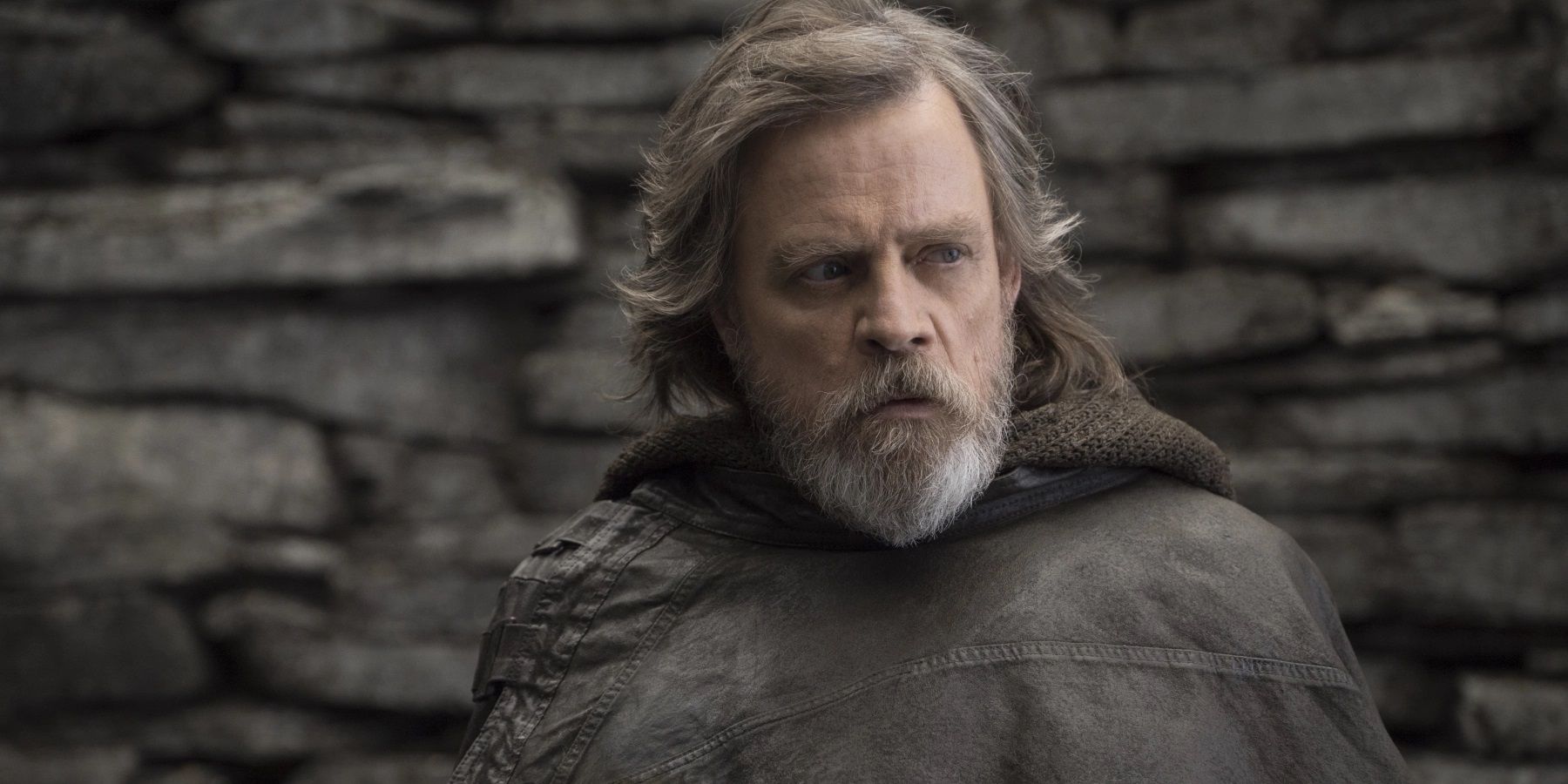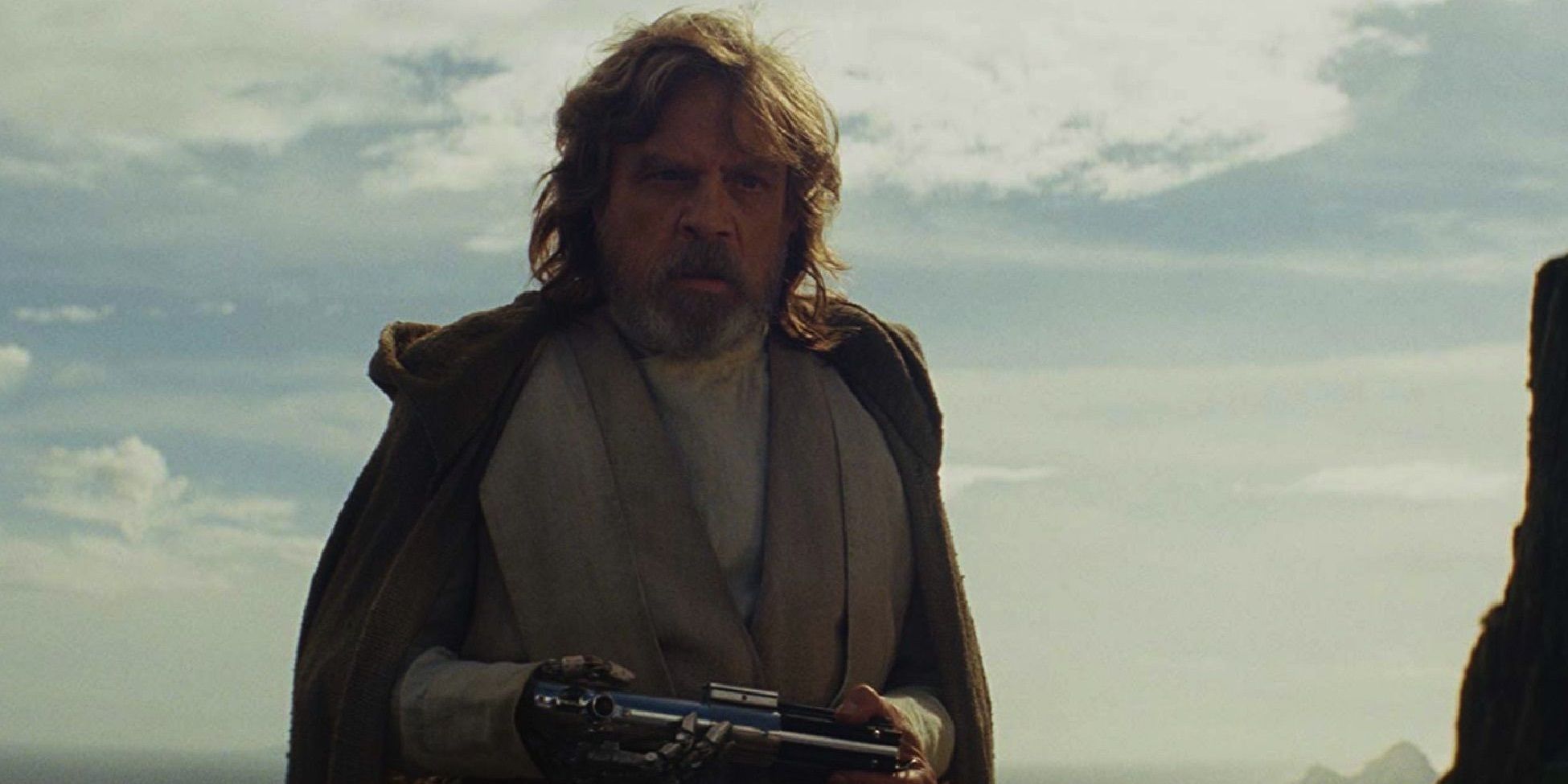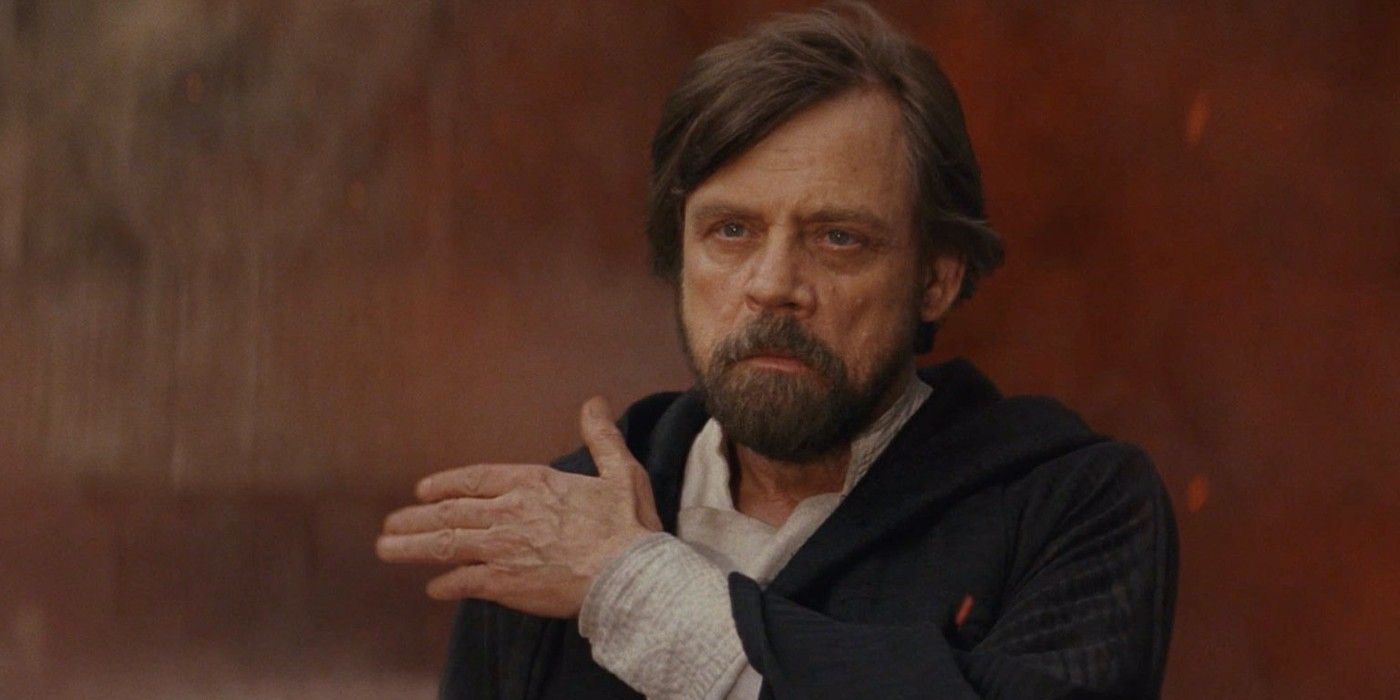
While Star Wars: The Last Jedi is arguably the best entry in the largely disappointing sequel trilogy from a technical standpoint, it’s also one of the most polarizing blockbusters in recent years. Following the cliffhanger left by J.J. Abrams with no real plan for where it would go, Rian Johnson explained that Luke Skywalker was isolated on Ahch-To because he impulsively tried to murder his nephew Ben Solo, solidifying his turn to the dark side and paving the way for yet another Jedi massacre and yet another evil empire. After that, he just gave up the fight against the Sith and the Empire and allowed them to reclaim the galaxy while he sat on a rock, drank milk straight out of alien teats, and waited to die.
From a storytelling perspective, this is a new idea that brings a unique angle to the overused formula that Abrams established in the previous movie. On paper, it’s a sharp deconstruction of the myths created by Star Wars. But in execution, it was inevitably going to disappoint a large portion of fans, because Johnson deconstructed the myth within the myth itself. His cynical take on Luke Skywalker is filtered through the actual Luke Skywalker, played by the actual Mark Hamill. Hamill even pointed this out to Johnson on the set during production.
RELATED: Star Wars: Luke’s Personality In ‘The Last Jedi’ Basically Came From George Lucas
Zack Snyder recently announced that he’s in the process of retooling the Star Wars project he tried to get off the ground a few years ago into an original sci-fi movie. It might not be a bad idea for more directors who want to make a Star Wars movie without the creative restrictions placed by Lucasfilm and the immense pressure of the fan base to filter their Star Wars concept into a whole new pulpy intergalactic universe.

Rian Johnson’s deconstruction of the Luke Skywalker myth in The Last Jedi was a promising idea, but it disappointed fans because he told that story through Luke himself. For many people, Luke Skywalker was a childhood hero and a bright-eyed symbol of hope and optimism, so seeing him give up and let people die didn’t yield a lot of joy. It was similar to Snyder’s own take on Superman. In Man of Steel, a brooding, conflicted Clark Kent isn’t sure if he wants to use his powers to help people. In the comics, his main conflict is that he can’t save everybody who needs to be saved all at once.
If The Last Jedi wasn’t the official eighth chapter in the Skywalkers’ story, it would be easier to get on board with a Luke-type hero giving up the fight against evil. If Johnson made his Last Jedi concept as a Brightburn-esque alternate dark take on Luke Skywalker, audiences would’ve undoubtedly been more receptive. Johnson proved with his movie Looper that he’s perfectly capable of creating his own sci-fi lore, and with Knives Out that he can put his own spin on a well-worn genre. Reimagining The Last Jedi as an original work set in a Star Wars-influenced universe with its own mythos entirely lines up with Mark Hamill saying that playing Luke as he was written in The Last Jedi felt like playing a different character who he jokingly named “Jake Skywalker.”
Snyder retooling his Star Wars movie as an original work is actually similar to Lucas’ process when he initially created the saga. Lucas first tried to get a Flash Gordon movie into production, but reworked it as an original space opera tentatively titled The Star Wars after failing to secure the rights. Ironically, these rights-holders couldn’t wait to make a Flash Gordon movie after Star Wars kicked off a trend of pulpy space adventures, resulting in the delightfully campy Sam J. Jones cult classic.
Not everybody has the clout that Snyder has. Snyder has the reputation and fan-following to command a high eight-figure sum to make a heist movie set in zombie-infested Vegas or a director’s cut of a movie that bombed at the box office (or, indeed, a Star Wars movie with all the names changed to reflect a new fictional universe), but most filmmakers will struggle to raise a modest budget of a couple of million to get their small-scale passion projects made.
The directors who do have the clout to get original ideas made should follow in Snyder’s footsteps and distance themselves from big, established franchises whose movies are controlled by legions of studio executives trying to appease shareholders and then judged by legions of toxic fans. Army of the Dead wasn’t a perfect movie by any means, but it was a big, exciting, action-packed genre movie harking back to ‘80s classics like Escape from New York. It grabs its wacky high-concept premise by the horns and goes to some really dark, weird places in an age when most blockbusters play it safe.

After Netflix’s whopping $400 million acquisition of the remainder of the Knives Out trilogy, it’s fair to say that Johnson has reached Snyder levels of Hollywood clout. Johnson’s Star Wars trilogy is still in development, but since it reportedly has no connection to the Skywalkers and features a cast of brand-new characters, it could easily be reworked into an original piece that will be received more warmly by uninitiated audiences than returning to the wretched hive of scum and villainy that is the Star Wars fan base.
While Jon Favreau and Dave Filoni have been carried away on Star Wars fans’ shoulders for their crowd-pleasing work on The Mandalorian, they’re in the minority. Most filmmakers who dare to touch a galaxy far, far away are met with vitriolic backlash from the fan base. If they nostalgically re-tread familiar storylines like Abrams, they’re criticized for being derivative. If they explore bold, controversial new ideas like Johnson, they divide the fan base.
There’s a lot of promising Star Wars content on the horizon; not every filmmaker with an idea for a Star Wars movie needs to necessarily make it as an official Star Wars movie. After Lucas was inspired by the sci-fi serials he grew up with to create Star Wars, today’s blockbuster directors can be inspired by the Star Wars movies they grew up with to create all-new worlds and characters – and deconstruct the myths with impunity.
MORE: The Last Jedi Was Disney’s Failure, Not Rian Johnson’s

